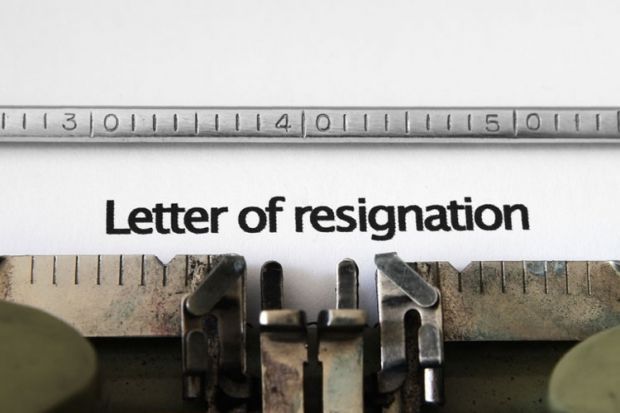Being a good v-c is about drawing lines in the sand that you are not prepared to cross - and being willing to depart if they are crossed
Loud applause – as close to an ovation as you get from a room of grey suits – and the incoming president of the National Union of Students returns to her seat.
Toni Pearce’s speech at this year’s Universities UK annual conference was certainly rousing. If you had looked closely, however, you might also have detected a hint of envy in the room.
Envy? From a generation who reaped the benefits of full grants, no tuition fees, no loans, no debt, and a labour market more willing and able to supply graduate careers? As Pearce reminded us at the University of Leicester, we have plenty to be grateful for.
So why the envy? Pearce was the latest in a long line of persuasive NUS presidents urging vice-chancellors to identify what they believe in, to stand up for the common good, to push the celebrities off the breakfast sofa, to marginalise the extremists on Question Time and to provide answers based on knowledge, understanding and careful evaluation of the evidence, usurping the knee-jerk populist response.
And as we cast an eye across freshers’ week, there is the odd moment when we think we would like to be radical, hip and “down with the kids”. In reality, though, we are mostly middle-aged, male, grey – and even a bit dull.
We have learned to be dull – careful with our words in public and careful about appending our name to those words. As the press coverage of the conference showed, one use of the term “xenophobia” (in a question to the secretary of state) guarantees a headline in The Times the following day.
We all know that the average “life expectancy” for a vice-chancellor in the role is less than five years and that governing bodies can be notoriously fickle. While a retiring vice-chancellor might still have a career, a redundant one does not.
Are we nothing more than the self-preservation society, then? It’s more complicated than that. We know that universities operate in an increasingly marketised environment and that negative publicity can destroy an institution’s reputation, causing collateral damage to the careers of many.
Does this leave us with a leadership devoid of principle, denuded of values, one that hides its beliefs from public scrutiny?
Vice-chancellors, speaking in private, invariably have strong views. All those I have spoken to believe in the transformational power of education. Yes, the salary is a significant incentive, but most accepted and welcomed the opportunity to lead because they believed they could develop their university and profession, and change individuals’ life chances for the better.
Being a good vice-chancellor isn’t about being on our television screens: it is about being prepared to fight for what you believe in and what you can provide evidence for, drawing lines in the sand that you are not prepared to cross – and being willing to depart if they are crossed.
To be a good vice-chancellor, you have to be prepared to stop being a vice-chancellor.
Say your senate, council, academic board and governing body have listened to the siren cries of ministers and are shying away from charging a market fee. The perceived status of your university and its capacity to recruit are under threat. Persuasion hasn’t worked. What should you do? Resign. Perhaps you know that your university is no longer progressing relative to the sector. What should you do? Resign. You are being driven in directions that are totally alien to your judgement, your values and your beliefs, and you see no way of changing course. What should you do? Resign.
To resign a post on principle is a luxury most cannot afford, but after three decades in academia, business or industry, with a lifetime of career progression and a decent pension scheme, it is a luxury available to a privileged few.
If it reaches that point, integrity intact, what does the future hold? Well, there may yet be a place on the breakfast sofa – providing the media are interested in heavily caveated, rational and informed debate. A forlorn hope?
Register to continue
Why register?
- Registration is free and only takes a moment
- Once registered, you can read 3 articles a month
- Sign up for our newsletter
Subscribe
Or subscribe for unlimited access to:
- Unlimited access to news, views, insights & reviews
- Digital editions
- Digital access to THE’s university and college rankings analysis
Already registered or a current subscriber? Login




